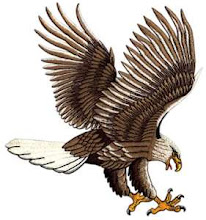

Edward "Butch" O'Hare (March 13, 1914 – November 27, 1943) was a United States Navy pilot who on February 20, 1942 became America's first World War II flying ace. The O'Hare International Airport in Chicago, Illinois, and USS O'Hare were named in his honor.
Early life
Edward "Butch" O'Hare was born in St. Louis, Missouri. He had two sisters, Patricia and Marilyn. When their parents divorced in 1927, O'Hare and his sisters moved to Chicago with their father, Edward J. O'Hare. The elder O'Hare was a lawyer who worked on many ventures with organized crime figure Al Capone after moving to Chicago, and was one of Capone's lawyers.
Butch O'Hare graduated from the Western Military Academy (WMA) in 1932, and the following year went on to the United States Naval Academy at Annapolis, Maryland. He graduated from Annapolis in 1937, following which he received choice duty on the battleship USS New Mexico (BB-40). After serving two years on the ship, in 1939 he started flight training at NAS Pensacola in Florida. When he finished his naval aviation training, he was assigned to VF-3, USS Saratoga's fighter squadron.
During Capone's tax evasion trial in 1931 and 1932, O'Hare's father provided incriminating evidence which helped finally put Capone away. There is speculation that this was done to ensure that Butch got into Annapolis, or to set a good example. Whatever the motivation, the elder O'Hare was shot down in his car in 1939, a week before Capone was released from Alcatraz.
Butch O'Hare was married in 1941, and shortly thereafter called to duty, the day after the attack on Pearl Harbor.
World War II service
O'Hare's most famous flight occurred on February 20, 1942. He was on board the aircraft carrier Lexington, which had been assigned the dangerous task of penetrating enemy-held waters north of New Ireland. While still 400 miles from the harbour at Rabaul, Lexington was discovered by a Japanese flying boat and a group of Japanese torpedo planes attacked the task force. As section leader and pilot of VF-3, O'Hare single-handedly shot down 5 or 6 planes and helped to save the ship. For this act he was promoted to Lieutenant Commander and awarded the Medal of Honor, the highest decoration of his country.
O'Hare was also awarded the Navy Cross, the Distinguished Flying Cross, and Gold Star in lieu of a second Distinguished Flying Cross in subsequent air actions.
O'Hare died in an air crash on November 27, 1943 at Tarawa during the first carrier-based night fighter operations by the U.S. Navy. The circumstances of his death are unclear, the assumptions being that his plane may have been hit by Japanese bombers, or gone down in friendly fire by the planes in his own formation.
Early life
Edward "Butch" O'Hare was born in St. Louis, Missouri. He had two sisters, Patricia and Marilyn. When their parents divorced in 1927, O'Hare and his sisters moved to Chicago with their father, Edward J. O'Hare. The elder O'Hare was a lawyer who worked on many ventures with organized crime figure Al Capone after moving to Chicago, and was one of Capone's lawyers.
Butch O'Hare graduated from the Western Military Academy (WMA) in 1932, and the following year went on to the United States Naval Academy at Annapolis, Maryland. He graduated from Annapolis in 1937, following which he received choice duty on the battleship USS New Mexico (BB-40). After serving two years on the ship, in 1939 he started flight training at NAS Pensacola in Florida. When he finished his naval aviation training, he was assigned to VF-3, USS Saratoga's fighter squadron.
During Capone's tax evasion trial in 1931 and 1932, O'Hare's father provided incriminating evidence which helped finally put Capone away. There is speculation that this was done to ensure that Butch got into Annapolis, or to set a good example. Whatever the motivation, the elder O'Hare was shot down in his car in 1939, a week before Capone was released from Alcatraz.
Butch O'Hare was married in 1941, and shortly thereafter called to duty, the day after the attack on Pearl Harbor.
World War II service
O'Hare's most famous flight occurred on February 20, 1942. He was on board the aircraft carrier Lexington, which had been assigned the dangerous task of penetrating enemy-held waters north of New Ireland. While still 400 miles from the harbour at Rabaul, Lexington was discovered by a Japanese flying boat and a group of Japanese torpedo planes attacked the task force. As section leader and pilot of VF-3, O'Hare single-handedly shot down 5 or 6 planes and helped to save the ship. For this act he was promoted to Lieutenant Commander and awarded the Medal of Honor, the highest decoration of his country.
O'Hare was also awarded the Navy Cross, the Distinguished Flying Cross, and Gold Star in lieu of a second Distinguished Flying Cross in subsequent air actions.
O'Hare died in an air crash on November 27, 1943 at Tarawa during the first carrier-based night fighter operations by the U.S. Navy. The circumstances of his death are unclear, the assumptions being that his plane may have been hit by Japanese bombers, or gone down in friendly fire by the planes in his own formation.




No comments:
Post a Comment